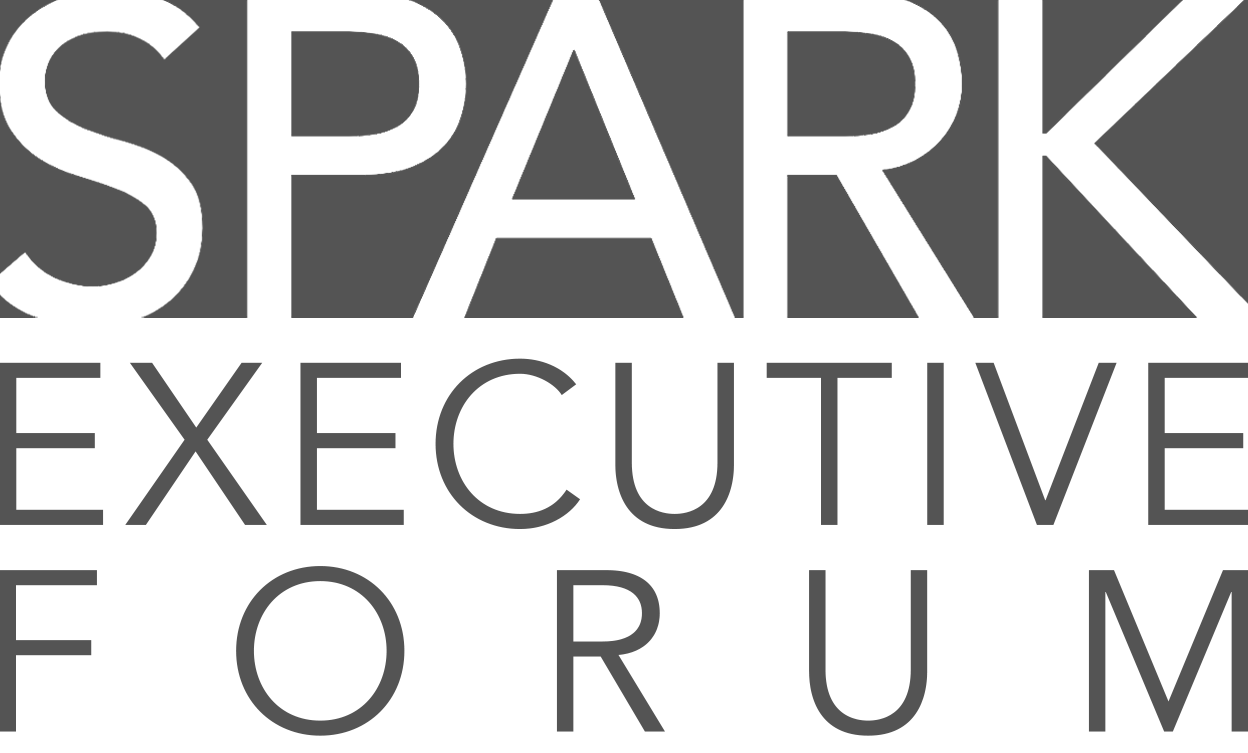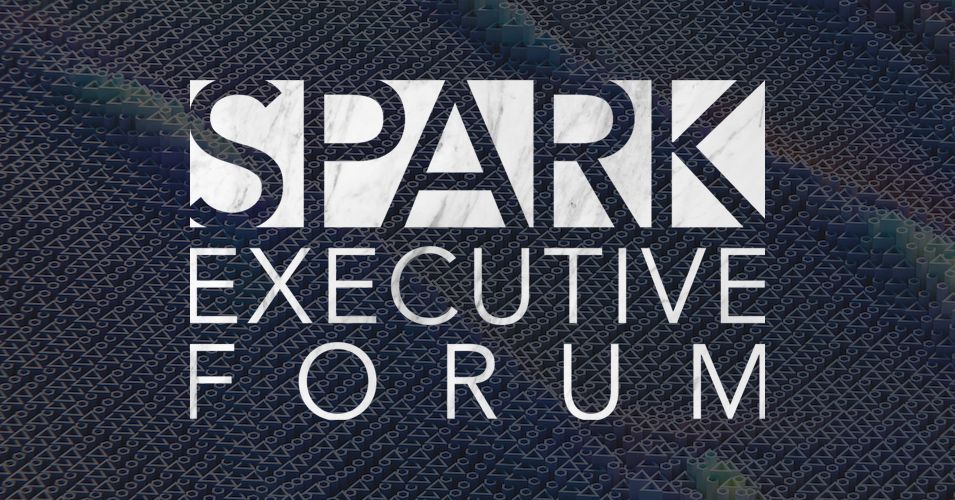
Spark 2022: Defining and Creating Business Value
For two days in Napa this April, an impressive constellation of C-level executives spanning a wide variety of industries participated in the Spark Executive Forum to dig into the notion of business value – what it is, how we measure it, where it defies measurement, and how technology can enable it.
The concept took shape as our attendees identified how they see business value, how they’ve created it, how the idea of value itself is shifting and changing across generations, and how it plays into the practice of (and organizational buy-in for) digital transformation. We also explored cutting-edge areas where business value is currently emerging, including augmented reality and the metaverse.
But the best of Spark came in the moments when our attendees – all accomplished people who have risen to the top of their fields – openly discussed their challenges as well as their successes, helping the group forge a collective understanding of how their past experiences could inform their future actions and approaches.
The meaning and purpose of transformation
Sometimes, it seems like the very concept of digital transformation falls somewhere between dirty word and holy grail. Personal experiences with and perspectives on the process of transformation can make for wildly diverging opinions on the topic. That’s no surprise, considering two statistics that were mentioned at Spark: 70% of transformation efforts fail, and 17% of IT projects fail so badly that they can create an existential threat to the business. On the other hand, the sponsors of that successful 30% become heroes who have set their companies up for long-term competitive advantage, changing the perception of their role in the process.
This brings us back to business value – which the group heartily agreed should be the driving factor behind transformation efforts. That may seem obvious, but it isn’t always the case; we hear again and again about companies spending tens or hundreds of millions on achieving “new capabilities,” accommodating executives’ fear of missing out, or collecting and analyzing so much data that it becomes impossible to distinguish actionable signals from noise. It’s become clear that these activities not only fail to generate business value – they are often wholly incompatible with it.
So how can transformation be driven by (and, in turn, drive) business value? Our speakers and panelists kept coming back to a few core concepts.
Business agility
First, there’s the notion of agility – not simply enabling it or engaging in agile development, but applying agile principles to your companywide transformation efforts. An agile business offers shorter lead times and a vastly improved ability to respond to sudden changes in the environment – such as a global pandemic that leads to global supply-chain disruptions and a “Great Resignation.”
Agile businesses can mitigate risk and seize new opportunities much more easily, which has arguably never been more important than it is today. At the same time, achieving agility is not always simple, straightforward, or cheap. The consensus was to take an iterative approach oriented toward incremental investments displacing legacy processes, “failing fast,” and achieving efficiency rather than endlessly adding new capabilities that lack a strong business case.
Measurement
Second, organizations must grapple with the question of how they measure value and for whom they intend to generate value. The traditional answer has been KPIs that generally reflect the interests of stockholders – but that’s a dated paradigm that lacks for nuance and relies on variables such as ROI that are becoming increasingly difficult to predict.
Instead, the focus should be on generating value for all your company’s stakeholders as well as your employees and your customers. ESG criteria and initiatives have rapidly grown into a large piece of that puzzle and promise to become ever more relevant thanks to their influence on customer perceptions and talent pipelines. When you generate value for employees and customers, you’re generating value for society in a wider sense – and transformation efforts that don’t take society’s shifting priorities into account will lead to operational, reputational, and regulatory risk.
Communications
All too often, organizations underappreciate the need for senior leaders to communicate effectively, consistently, and on an ongoing basis. Change can be scary, especially for people who have grown accustomed to doing things a particular way. Yet technology has become inextricable from the work (and, in many cases, the products) of almost every organization, so any technological change will have major ripple effects.
Even if your transformation is certain to create value within your organization and for your customers, that value may never be realized if the vision isn’t communicated effectively to the stakeholders at every level. That means digital transformation must be interwoven with cultural transformation so that everyone – from leadership to management on down – is on the same page about the urgency and the purpose of those transformative efforts.
Generational influence
Every business is in the process of transformation, and perhaps the most obvious change is the gradual transition of its workforce to newer generations. That new wave of employees comes with a different set of expectations and priorities than those to which legacy businesses have grown accustomed. Much of the discussion at Spark narrowed in on those distinctions, how they play into the frighteningly thin IT and broader talent pipeline, and what companies can do to address talent shortages moving forward.
The technology field is known for its turnover – a reality that stands in stark contrast to every company’s and every IT department’s desire to project and ensure stability. Low retention and hiring challenges in IT threaten an organization’s ability to offer a consistent level of support both internally and externally, which can have major business consequences.
So what can companies do to gain quality employees and keep them, accounting for generational shifts in prioritization on topics like work-life balance, diversity initiatives, organizational transparency, and career development?
There are many answers that move the needle, but the one that stuck out the most at Spark was investing in people in a meaningful and multidimensional way – and the sooner you start, the better. We have tremendous wells of untapped talent right here in the United States, and initiatives like Outsource to America, TechPACT, and Girls Who Code are not only helping to build a diversified IT workforce, but also creating a foundation of career development and planning – which in turn fosters loyalty and improves retention. Cultivating an environment of continuous learning ensures that your people don’t get stuck in a rut of doing the same thing every day. More importantly, it helps them gain the skill sets they need to tackle tomorrow’s challenges and grow into tomorrow’s leaders. There is a direct line from nurturing career growth and excellence to creating business value – capable and committed teams make agility faster and cheaper to achieve.
Diversity, equity, and inclusion
Our “Building Talent Pipelines with Purpose” panel focused on promoting diversity as a major component of developing the next generation of tech workers. This topic produced some of the liveliest discussion at Spark as our group actively explored the gap between the intent of DEI programs at large organizations and the actual outcomes they produce. While some organizations have taken laudable steps forward, many others have had their progress hampered by a lack of high-level organizational accountability. Still others have gotten too caught up in trumpeting their numbers, at the cost of telling an effective story about how diversity makes a qualitative impact on the organization.
As this panel dug into how they've refined their talent initiatives over time to maximize their impact, a new addition emerged for the DEI formula – the concept of belonging. The idea is simple: When you create an environment where people of all backgrounds feel free and accepted as their authentic selves, you get the very best of them. Engendering that sense of belonging is the ultimate goal of these programs; it speaks to an organizational culture that has evolved to embrace diversity, equity, and inclusion as core values rather than mere talking points. The result is a healthier, more flexible, more creative, and more capable workforce.
Tech debt
Another of the more colorful dialogues at Spark began with the question: “Is cloud the new tech debt?” Tech debt is not a new concept – nearly every organization has to wrestle with legacy investments, infrastructure, and processes. In recent years, moving to the cloud has offered the promise of efficient, pay-as-you-go scaling – and ultimately, the “as a service” model.
The truth is that cloud is both a model and a destination, and those are two very different thoughts and outcomes. Our panelists noted that most businesses lack governance of their cloud environments, which leads to sprawl and overspending – muddying one of the primary value propositions for leveraging cloud in the first place. There is also a substantial gap in the planning and prioritization process of moving applications to the cloud, which in many cases can erode agility and present significant financial, operational, and technical risks.
At this point, the days of planning a five-year ERP transition and waiting for outcomes are long gone. The most effective way to eradicate today’s tech debt is an iterative process of making smaller, rapid changes over time. It’s well worth noting that legacy assets are sometimes left behind and forgotten once services have moved, so organizations must ensure that they have a handle on their technology asset management and retire those assets once they’re no longer necessary.
Final thoughts
Transformative efforts take different forms across organizations and industries, but if Spark showed us anything, it’s that the charter and mission of transformation are completely independent of company size and industry vertical. The goal is to outcompete the field, and the way to do that is through proactive, comprehensive efforts to create agile organizations aligned to business value and the identity of the business. Defining that value is an iterative journey of cross-functional collaboration and learning – and, as you might expect, it’s timebound because of shifting landscapes and limited attention spans. Finally, while creating business value and successfully achieving transformation requires much more than just implementing new technology, technology holds a unique role as the enabler that – when done right – positions the entire organization for success.
Interested in attending a future Spark session?















